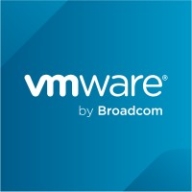

VMware Tanzu Data Solutions and MuleSoft Anypoint Platform compete in the enterprise technology category. VMware Tanzu is superior in data processing with its advanced capabilities, whereas MuleSoft excels in API management and connectivity.
Features: VMware Tanzu Data Solutions offers Massively Parallel Processing (MPP) for high-speed data handling and scalability, external table functionalities, and robust parallel processing. MuleSoft Anypoint Platform is distinguished by a wide variety of connectors, comprehensive API management, and ease of rapid API development.
Room for Improvement: VMware Tanzu Data Solutions requires enhancements in query stability, memory performance, and scalability. Greenplum users face backward compatibility hurdles. MuleSoft Anypoint Platform needs improved documentation, ease of integration, and clearer pricing. Users demand better technical support and a more user-friendly environment.
Ease of Deployment and Customer Service: VMware Tanzu Data Solutions supports flexible deployment across on-premises, public cloud, and hybrid environments, but faces mixed reviews on customer service. MuleSoft Anypoint Platform supports various cloud models but is criticized for complex licensing and integration. VMware’s open-source community helps in problem-solving, while MuleSoft’s customer service needs enhancement in technical support and pricing clarity.
Pricing and ROI: VMware Tanzu's open-source availability makes it cost-effective initially, with paid additional features typically offering good ROI. MuleSoft's high pricing model reflects its extensive features and enterprise support but might deter small businesses. Its pricing complexity and transition challenges between CloudHub and RTF are noted, though it potentially offers value if leveraged fully.
I have seen a return on investment with VMware Tanzu Data Solutions because of its speed and the robustness of the environment.
The support team is responsive and helpful.
The Salesforce team offers different levels of support.
Customer support for VMware Tanzu Data Solutions has been good with me and with VMware, including Broadcasts.
MuleSoft Anypoint Platform is quite scalable, and it meets our use cases with no issues preventing implementation.
MuleSoft provides the ability to scale, yet it is costly to do so.
Most of our functions or jobs are queued due to that.
I have faced stability issues, mainly due to the storage my organization has, though I am not sure if it's specifically due to the tool.
MuleSoft is considered expensive, so pricing is a major concern.
Currently, it uses other standards, but adopting OpenAPI, the standard in the market, would be beneficial.
When dealing with multiple transactions or trading, the system can lose control, and tracking becomes hectic.
VMware Tanzu Data Solutions can be improved as it is better and faster for administration and clusters, Dockers, and Kubernetes.
I do not know the specific costs, but given that it is part of MuleSoft, I suspect it is not cheap.
MuleSoft is considered one of the more expensive products in the market.
The platform reduces manual workload in maintaining infrastructure, but it does come with some cost considerations.
My experience with pricing, setup cost, and licensing for VMware Tanzu Data Solutions is that it is a bit expensive.
The platform is integrated with Salesforce, making it preferable when using Salesforce products.
MuleSoft Anypoint Platform helps to standardize data integration approaches, making it easier to implement integration projects.
The most valuable feature is the full lifecycle management, including Anypoint Designer and Exchange, as well as Discofolio API.
The principal aspect is the creation of Kubernetes clusters.
The product is not complex; I do not have to create stored procedures, functions, or views.
| Product | Market Share (%) |
|---|---|
| MuleSoft Anypoint Platform | 8.6% |
| VMware Tanzu Data Solutions | 6.0% |
| Other | 85.4% |


| Company Size | Count |
|---|---|
| Small Business | 21 |
| Midsize Enterprise | 12 |
| Large Enterprise | 29 |
| Company Size | Count |
|---|---|
| Small Business | 30 |
| Midsize Enterprise | 10 |
| Large Enterprise | 49 |
MuleSoft Anypoint Platform provides API management and integration capabilities with scalability, ensuring seamless connectivity across systems.
MuleSoft Anypoint Platform offers API management and integration capabilities within a user-friendly interface. With a range of connectors and the ability to handle integration patterns, it enables data integration across environments with support for API-led connectivity. High scalability, observability, batch processing, and tooling are key features, enhancing performance while simplifying deployment.
What are the standout features of MuleSoft Anypoint Platform?MuleSoft Anypoint Platform is employed by organizations for API management and seamless integration across systems in industries like retail and e-commerce. It connects enterprise applications in environments such as SAP and Salesforce. Users leverage it for data transformation and synchronization, achieving efficient real-time processing and a middleware layer across systems.
VMware Tanzu is a robust platform tailored for data warehousing, complex analytics, BI applications, and predictive analytics. It excels in scalability, performance, and parallel processing, enhancing data handling efficiency. Users report significant productivity improvements and streamlined operations, making it ideal for comprehensive data solutions.
We monitor all Message Queue (MQ) Software reviews to prevent fraudulent reviews and keep review quality high. We do not post reviews by company employees or direct competitors. We validate each review for authenticity via cross-reference with LinkedIn, and personal follow-up with the reviewer when necessary.